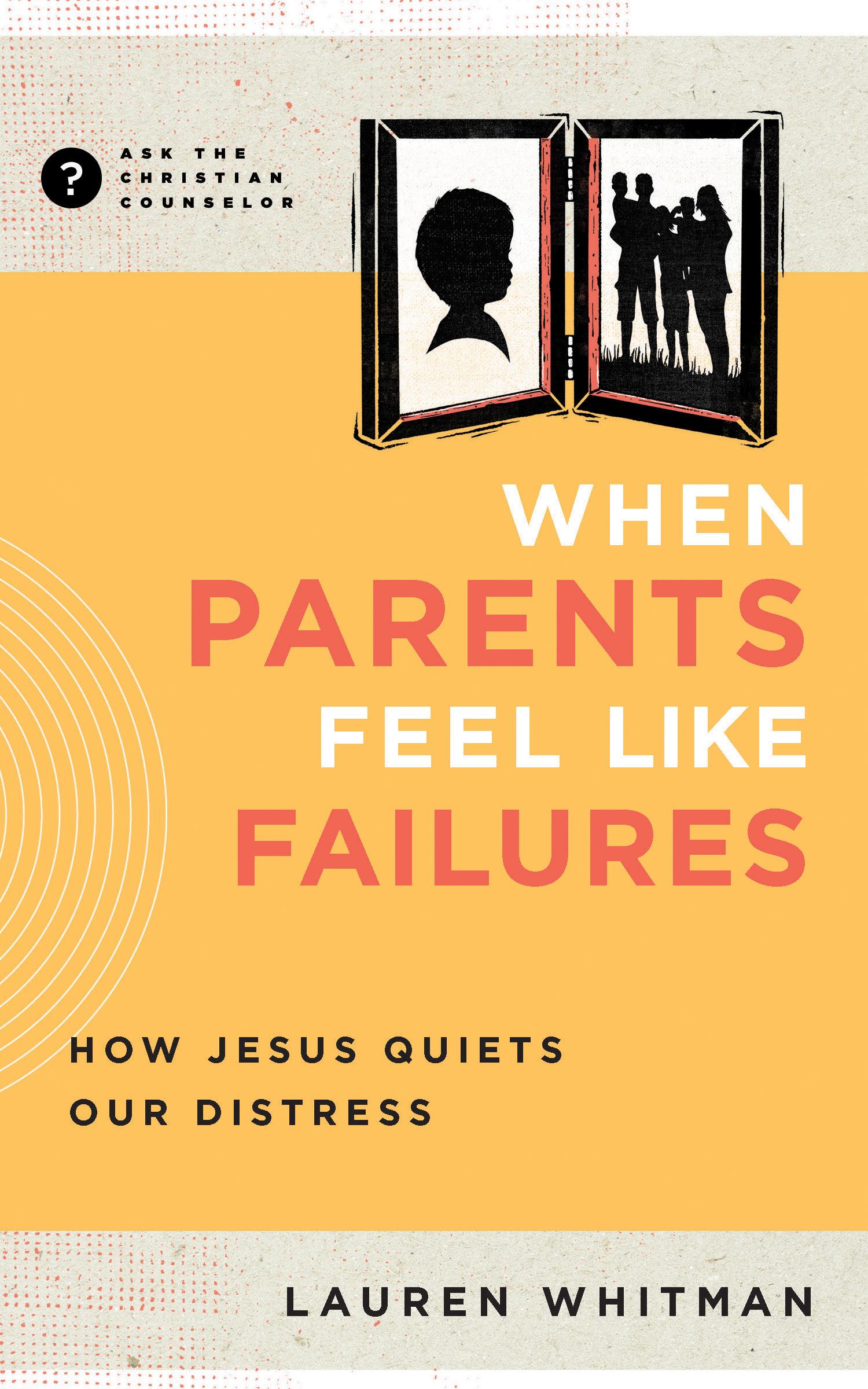Over the past year, I have dedicated much of my ministry work to parents. I have not sought to provide guidance on how to parent but rather to bring comfort for the many distressing emotions parents experience. One of the more challenging emotions parents experience is regret.
When parents struggle with regret, we review and rehearse the choices we made. When we have played a role in a consequential matter with our kids, we review and rehearse what we did. This is especially the case when we see an unwanted outcome in our children’s lives, or there is now an undesired dynamic in our relationship with them.
One way to capture the experience is with a loop. The thoughts that lead to upset and distress loop around and around.

When we remember something we could have done but didn’t, we might struggle with self-loathing or self-blame. When we see that we missed an opportunity to have a desirable impact, we have harsh feelings toward ourselves.
So the question becomes, Is there any escape from this loop? Not easily. It’s hard to find an exit path because the regrets concern our children. No one is more important to us. It’s challenging to feel better or find comfort because we care so deeply for them. Our pain, our regret, is very deep.
Knowing personally how hard it is to escape from this agonizing loop, God has used a story in the gospels to instruct my heart. As Jesus’s public ministry began, people started flocking to him for healing. In Mark 5, a desperate parent seeks Jesus out.
Then one of the synagogue leaders, named Jairus, came, and when he saw Jesus, he fell at his feet. He pleaded earnestly with him, “My little daughter is dying. Please come and put your hands on her so that she will be healed and live.” So Jesus went with him. (v. 22–24)
Jairus’s situation is different from the regrets we have in view. Jairus runs to Jesus because his daughter is ill, not because of past regrets, but the picture of him seeking out Jesus still provides a blueprint for an escape from the regret loop. Like Jairus, we aim to bring what is most precious to us—our children—to the one who can help them. And this is what we learn: the way through regrets is running to our Redeemer. We plead earnestly with him for our children and on their behalf. Whatever is in the past that we have come to regret, we take it, and we go to the One whose heart is inclined toward his people.
Notice the movements. The regret loop goes nowhere. But like Jairus, we learn to run. To plead. To ask for Jesus’s intervention.
Let’s go back to the text for a moment. I love the immediacy of Jesus’s response. He doesn’t speak; the text just says, “Jesus went.” He saw Jairus’s desperation and he went. As Jesus begins walking toward Jairus’s home, he performs another miracle—he heals the woman with the issue of blood—then someone approaches them on the road. Here is the rest of the story.
Some people came from the house of Jairus, the synagogue leader. “Your daughter is dead,” they said. “Why bother the teacher anymore?”
Overhearing what they said, Jesus told [Jairus], “Don’t be afraid; just believe.”
He did not let anyone follow him except Peter, James and John the brother of James. When they came to the home of the synagogue leader, Jesus saw a commotion, with people crying and wailing loudly. He went in and said to them, “Why all this commotion and wailing? The child is not dead but asleep.” But they laughed at him.
After he put them all out, he took the child’s father and mother and the disciples who were with him, and went in where the child was. He took her by the hand and said to her, “Talitha koum!” (which means “Little girl, I say to you, get up!”). Immediately the girl stood up and began to walk around (she was twelve years old). At this they were completely astonished. (Mark 5:35–42)
There is so much comfort for us as parents in this miracle! Jairus’s daughter has died. Those who meet Jairus on the road to inform him suggest that he should no longer “bother” Jesus. But Jesus lets himself be bothered.
Parents, bother Jesus. This is just another way to say, plead with him. Ask for his intervention. Bothering Jesus is movement. It’s something worthwhile to practice. It’s an escape from the loop.
We bother Jesus because he cares about our children—and of course, it is not actually a bother to him at all. When Jesus hears that comment, he turns to Jairus and assures him to not be afraid. If someone’s daughter has just died and someone says, “Don’t be afraid,” that would be a ridiculous thing to say. Jairus’s fear has come true, and if anyone said to him, “Don’t be afraid,” it would be cruel. But Jesus is not just anyone. He is the Redeemer of the world. He is the God who lets himself be “bothered” by parents who are coming to him on behalf of their children. And his response gives us good reason to put our faith in him.
Seeing what Jesus does next in this story increases our faith. Jesus does not turn around because Jairus’s daughter has died. He continues to walk toward her. And when he arrives at their home, he does what is impossible for man but what is possible for God: he raises her from death to life.
One of a parent’s greatest fears is the death of their child. This has happened to Jairus. But Jesus is there, and so the story doesn’t end with her death, but with life. This is why we put our faith and trust in him. He is able to bring life after death. For any regrettable situation involving your children, put your faith in him. He is the Redeemer, and he lives to bring new life to all the broken places in our lives.
So gathering up all we can from this story, we have found a way out of the regret loop.
We run to Jesus.
We plead with him.
We ask for him to act.
We bother him again and again because we can. Because we have access to him. Because he willingly takes on our burdens, so that we may be relieved of their heaviness.
Then we wait with hope and patience for him to act because he is the Redeemer of the world, and nothing is impossible for him. We put all of our faith in him because of his compassion for us and for our children and how that moves him to intervene for our good.
Parents, the regret loop is miserable. Jesus is your rescue.




